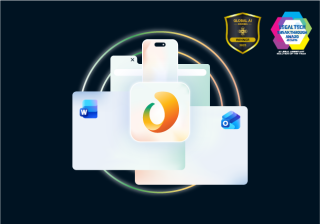Exploring the Future of Legal Tech: Key Insights from Our Special Report on Legal GenAI
In the rapidly evolving landscape of legal technology, generative AI (GenAI) stands out as a transformative force. However, the hype around GenAI necessitates a nuanced understanding of its practical implications and performance in real-world legal contexts.
Our new whitepaper, "Special Report: The State of Legal GenAI in 12 Charts," offers a comprehensive analysis of GenAI’s current capabilities, focusing on its retrieval and reasoning abilities. Here's a summary of the key findings and what they mean for the future of legal practice.
The Core Concepts: Retrieval and Reasoning
The report examines two critical aspects of GenAI:
- Retrieval: The effectiveness of finding relevant information in response to user queries.
- Reasoning: The ability to synthesize and transform retrieved information into actionable insights.
Comparing GenAI and Human Lawyers
To assess how GenAI stacks up against traditional legal professionals, the report references studies by Martin et al. (2023) and Roegiest et al. (2018). The findings reveal that while GenAI models like GPT-4 show promise, they are not without limitations.
- Retrieval Performance: GPT-3.5 struggled with both precision and recall in retrieving relevant text. In contrast, Kira's AI outperformed other groups, including junior lawyers, in finding pertinent information.
- Reasoning Performance: GenAI’s reasoning abilities are better when provided with relevant text upfront. GPT-4, for example, performed comparably to LPOs and junior lawyers in answering legal questions.
Time and Cost Efficiency
GPT-4, though slower than GPT-3.5, is significantly faster than human lawyers. This efficiency can translate into cost savings, with GPT-4's cost per document being substantially lower than that of LPOs.
Limitations and Challenges
Despite its potential, GenAI faces challenges. For instance, GPT-3.5 showed poor performance in detecting violations of US federal laws. Additionally, the report discusses the risks of hallucinations in commercial GenAI solutions, emphasizing the need for careful integration and validation.
Paths to Improvement
The report identifies key areas for enhancing GenAI’s performance:
- Retrieval: Advancements such as hybrid search and reranker models could significantly improve retrieval accuracy.
- Reasoning: Techniques like chain-of-thought (CoT) prompting and few-shot learning have the potential to enhance reasoning capabilities.
Looking Ahead
The integration of GenAI into legal practice offers both opportunities and challenges. While GenAI models like GPT-4 provide valuable speed and cost benefits, they must be evaluated against traditional tools and professionals. The future of legal GenAI lies in refining these technologies to better support legal workflows and decision-making.
To delve deeper into the state of legal GenAI and explore the detailed findings of this report, download the full whitepaper today.




